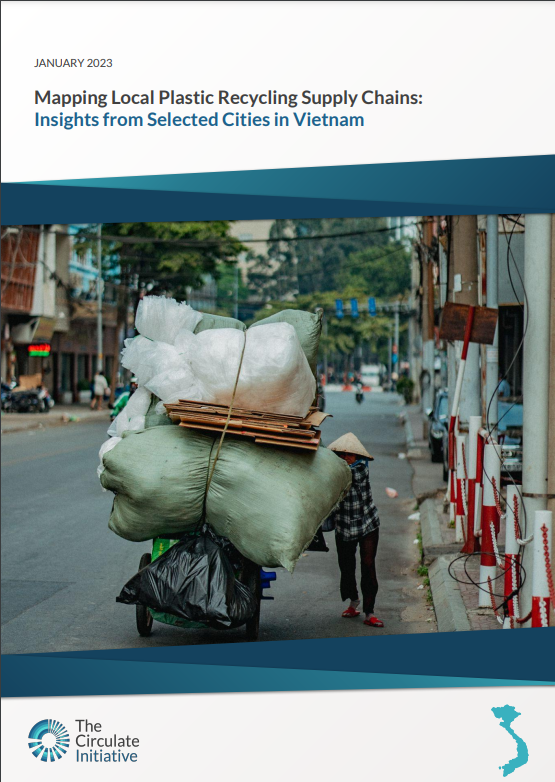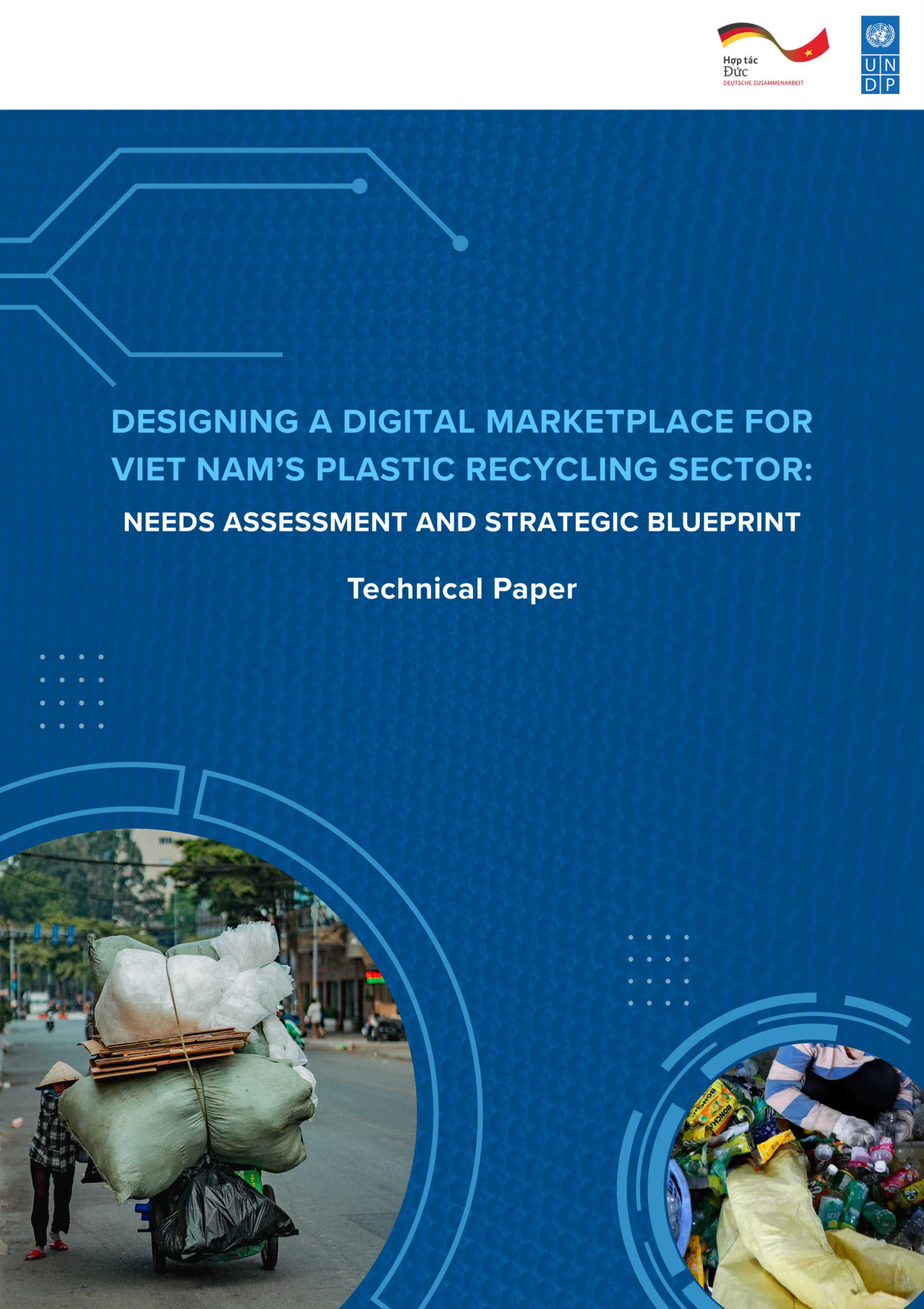Report: Mapping Local Plastic Recycling Supply Chains: Insights from Selected Cities in Vietnam
Plastic recycling supply chains in South and Southeast Asia rely heavily on the informal sector, which is closely tied to local conditions, traditions, and infrastructure. Identifying the key actors, and infrastructure, and influencing regulations at the local level can help to determine the best interventions to improve existing systems and mitigate plastic pollution.
In collaboration with Anthesis Group, The Circulate Initiative (a non-profit organization committed to solving the ocean plastic pollution challenge by creating more circular, inclusive, and investible waste management and recycling systems in emerging markets) conducted a detailed assessment of twelve watersheds across India, Indonesia, Thailand, and Vietnam to map local plastic recycling supply chains and their corresponding infrastructure. The resulting country reports offer insights into formal and informal waste management systems’ infrastructure enabling or preventing progress, and the influence of public and private sectors when it comes to implementing systemic change.
Report for Vietnam shows the research on the management of plastic waste in Hanoi, Ho Chi Minh City, and Da Nang which national and local waste management administrations dominate; however, large amounts of recyclable waste are handled through craft villages, involving households in the town in informal waste collection, aggregation, pre-processing and recycling. The objectives of the report were to:
‣ Understand the supply chains for secondary plastics at a local level, including the key actors, infrastructure, and influencing regulations.
‣ Understand the economics for secondary plastic at each stage of the local plastic supply chains and the key factors influencing prices.
‣ Identify where interventions to improve supply chains could be made.













